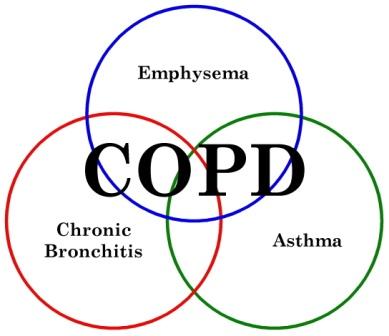COPD can have a devastating impact upon your personal life but if you are also aged 45-65 it can also have an even greater impact on your job. Work-loss for COPD patients is not just due to COPD alone but also due to the other associated medical problems that coexist with COPD. Not being able to work has an impact on the rest of your life, from financial worries to personal fulfillment.

Results from a cross-sectional survey of 2,426 people with COPD living and working in 6 countries around the world (Brazil, China, Germany, Turkey, United States and United Kingdom) revealed the following:
• 80% were unable to maintain their previous lifestyle.
• One in four felt they could not continue to care for their children or other members of their family as they once did.
• One in five felt they had become a burden to family members and friends.
• 41% felt they could no longer plan for their future.
• 37% reported their income had dropped since being diagnosed.
However some people still manage to continue working until retirement. It depends on your job role; will it make your condition worse by continuing to work in that role or is there an option to change roles or career so that you can still work? If this is not possible then you can claim long-term disability which will give you some income.
If however you feel that you can continue employment then there are things that you and your employer can do to make your work life less of a burden on your disease. The employer will welcome that a few changes will help to ensure that you don’t take as many days off from work for being ill.
Here are just a few accommodations that employers can make that are not overly imposing:
• Providing an accessible parking space that is close to the door.
• Moving your workstation closer to the entrance of the building.
• Allowing you to work from home at least a couple of days a week, if not every day.
• Providing a smoke-free, dust-free, fume-free environment. This can even mean asking other employees not to wear heavy colognes or perfumes.
• Providing adequate ventilation.
• Allowing you a flexible schedule so that you don’t miss your doctor appointments or perhaps letting you come in later on certain days.
• Giving you advanced notification of any construction work or cleaning that will be going on in your particular work area.
• Allowing you to use a scooter or motorized cart to increase your mobility while in the workplace or to move from one office building to the next during work hours.
If your employer makes changes to help you then you must try to ensure that you are as productive as possible in return:
• Doing everything you can to prevent COPD exacerbation. An exacerbation can cause you to miss more days of work, or worse yet, land you in the hospital. Frequent hand-washing, staying away from crowds and sick people and getting your vaccinations will all help.
• Wearing your oxygen at work. Oxygen therapy helps prevent breathlessness, improves your mental alertness and increases your stamina so you can get through your work day. If you feel conspicuous with your nasal canula then there are oxygen glasses you can try or tracheal oxygen may be an option as you can hide the tubes with a scarf or a high-neckline top.
People with COPD are more likely to accept early retirement than those who do not have COPD and this can negatively impact your pension benefits and have a dramatic affect on your financial well-being, as well as that of your family.
Before deciding on retirement you should ensure you have explored with your doctor and your employer all possible avenues of adapting your workplace environment and tried different medications before giving up on work completely. You can also talk to a financial adviser to see what else you could do to ensure that you and your family are well taken care of.
References: http://copd.about.com




